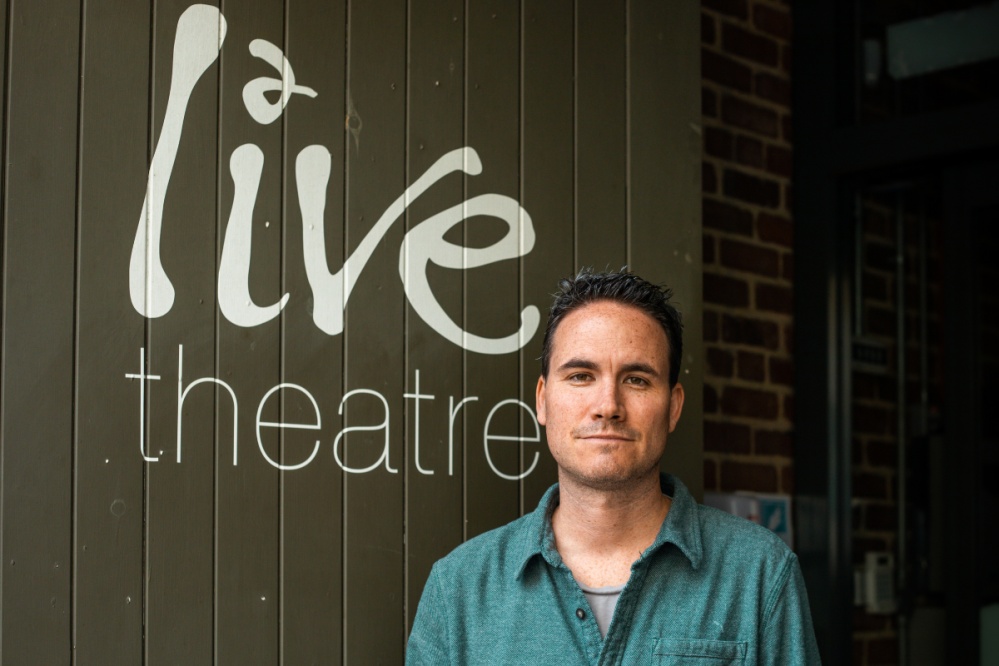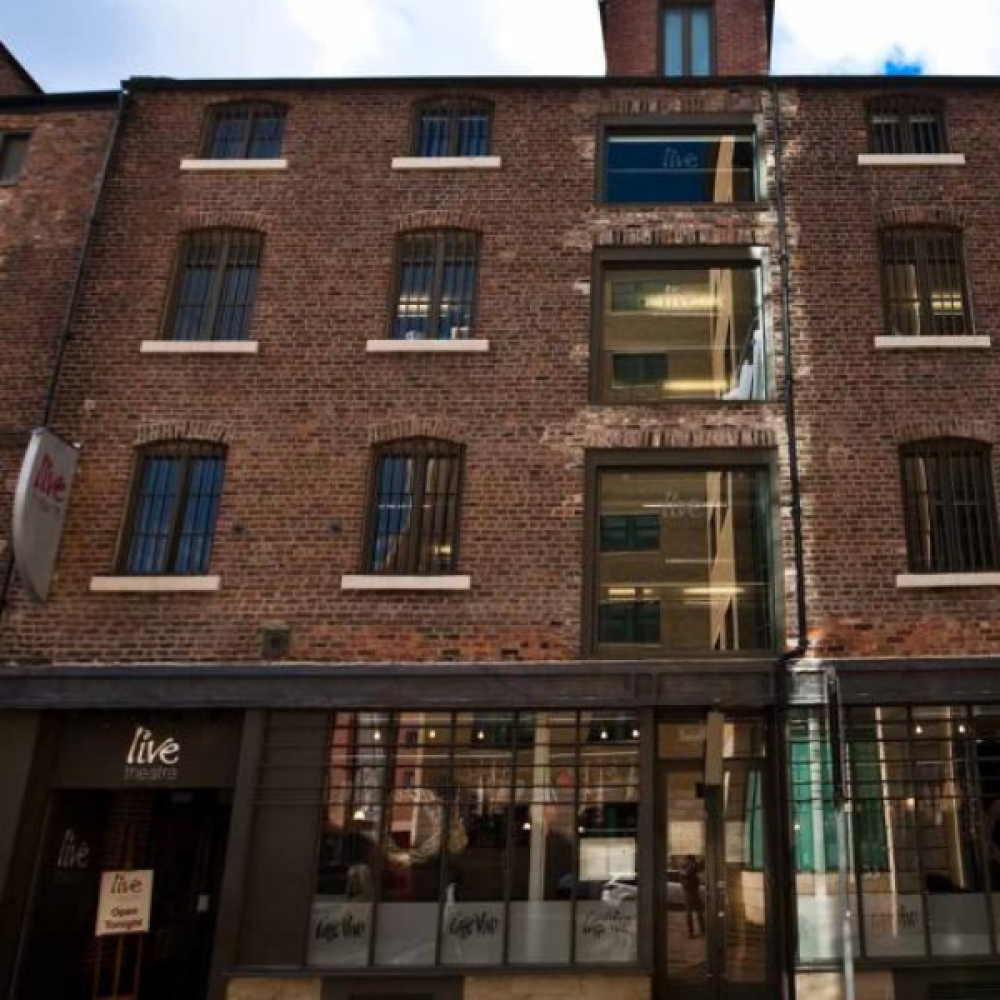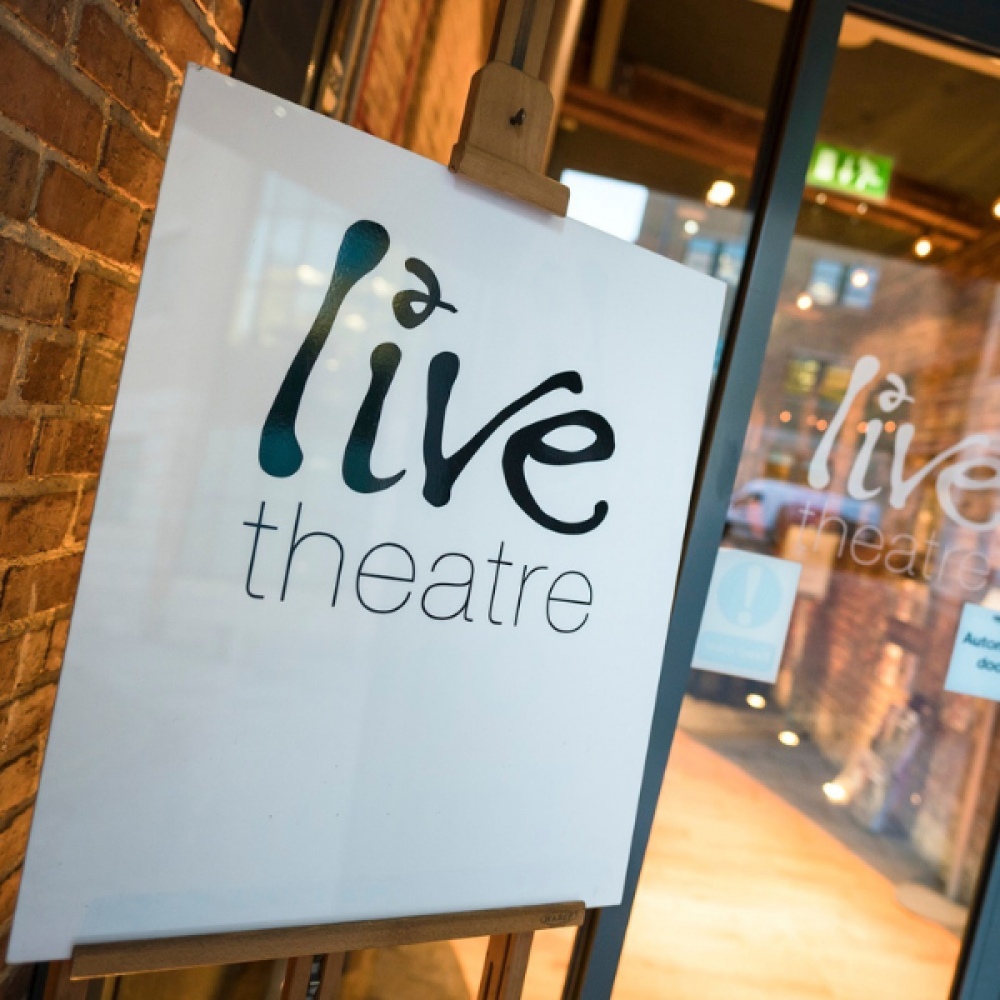How Newcastle’s Live Theatre Hopes to Reshape The Future of The Arts

Live Theatre’s artistic director and joint CEO Jack McNamara shares his thoughts on the future of the arts in the North East ahead of the theatre’s 50-year anniversary
Tell me a bit about yourself.
I moved here to the North East last August. I had been running a touring company in Nottingham called New Perspectives for around 10 years so I was in the Midlands for a long time. When I came to the North East, I wanted to be as close to the edge of it as possible to reward myself with some sea (you feel very landlocked in the Midlands).
I was working on lots of theatre productions based on books and movies and working with new talent, but I was always touring so the huge appeal of this job at Live Theatre was to be put in charge of a building that means so much to people. Although I'd been working in theatre for a long time, I'd never actually had the the keys to a building.
Read More: The Twenty Seven Club Heads to The Stage
How did you get into theatre work to begin with?
In school I was a bad kid. I wasn't very good at anything, and therefore not well liked by my teachers. I grew up in Switzerland and theatre didn't seem to exist there. I had a slightly crazy Scottish drama teacher who came into my school and blew my mind. I wanted to grow up and be like this guy was.
I guess my love for theatre started then. I moved to the UK when I was around 18 or 19 and it was hard but by juggling theatre with lots of different jobs I eventually got a place with a touring company, and that was a real game changer for me. It was a slow burn.

How have you found your new role at Live Theatre so far?
It’s a really fascinating time to take over an organisation because of what we’ve all been through over the last few years – maybe more challenging than it normally would have been. I've been overwhelmed by the possibilities, particularly in a place like Live which is a gorgeous little oasis with the most beautiful main theatre but also a studio upstairs, a beer garden and a children's centre. There's so much we can do here.
I certainly haven't been scratching my head and wondering what to do; it's about selecting what to do. I feel like I couldn’t have entered at a more tricky time but in a way that’s quite good because I don’t have much time to coast. Live Theatre is now run by me and Jacqui Kell equally which says a lot about where we're going as an organisation – maybe there's going to be less hierarchy, supporting people at all levels and challenging what kind of artists can be on our stage.
We're making lots of bold commissions. Our theatre has to be open to everyone. I'm really enjoying it but there's so much going on all the time that it’s hard to sit back and take it all in.
Live Theatre celebrates 50 years next year. How will you be celebrating?
We’re going to have a big programme of work throughout the year with so many opportunities to celebrate the productions we’ve held. But we’re also all about new work, and looking forward. We'll be merging our nostalgia with the possibilities of our future. Look out for special events such as work by local musicians and dedicated readings.
In your eyes, what does the future hold for Live Theatre?
We’re moving towards a more inclusive organisation. There’s still a perception that Live's big successes are by particular kinds of writers and artists (perhaps more traditional plays and subjects that have dominated the North East). I think we want to show the whole picture. That's what we're here for.
There are centuries of female experiences that need to be put on stage for example. We definitely still have work to do to share every different kind of experience and bring up to date the cultural experiences in the North East. We’re being patient in that change does take time so we are going to try and do things properly. This is just the beginning.
It’s about how all organisations support people who haven’t been supported. Since lockdown the danger now is that we go back to our norm and forget about the people that were suddenly included in conversations. Part of this mission is that we learn from what happened when everything was taken away from us. I hope for the North East that this means more people will be enjoying culture and art. I'm not naive that Live Theatre has a big battle on its hands.
Read More: Comedy Nights, Art Classes and Shows Across the North East this September
Favourite theatre performance you've ever seen?
I like being on the edge of my seat and the performances I get excited by are things that are slightly unexpected. For example, a play of Debbie Tucker Green's called Random is a one-woman show and she couldn’t perform so a man called Nathaniel Martello-White just got up and did it. For me, watching that completely raw, unready performance was totally pure, and felt super exciting. Similarly, we had to get some actors to step in when we showed We Are The Best and that was so exciting.

Favourite films?
That's so hard. I would say The Haunting, a horror film from 1963 – it’s the perfect horror but very theatrical because it centres around one woman. It’s based on a Shirley Jackson story and they remade it with Catherine Zeta-Jones. I actually think they made it into a Netflix series which was even worse. But the original was amazing.
Three actors you'd like to have are your dinner table from past or present.
Michaela Coel. I May Destroy You was a total game-changer. He’s not really an actor but John Waters (he's a filmmaker). Andrea Riseborough because she's from the North East and I want to hear her perceptions.
The most talented actor you've ever met.
I met a young actor called Valentine Olukoga. I'd been auditioning people for months, with big CVs and training credits, but this guy came in with pretty much nothing except Brixton Prison on his CV – but he was mind-blowing. I didn’t care where he came from, he had to play the part.
I gave the part to him and he did a show with me called The Fishermen – and he ended up winning Best Actor at The Black British Theatre Awards for that show. He broke his hand during production and kept going. He never gave anything less than 150 percent. He defied all expectations of what you're supposed to be if you're a successful actor.
Advice for anyone looking to get into theatre.
The industry is changing and people are a bit nicer than they were in my time. My advice would be to approach the venues and people in a casual and decent way. Not overly pushy but not overly self-apologetic. Art organisations need you as artists so don’t feel like they're doing you a favour, because ultimately you’re doing them a favour.
Don't take things too personally. Build up a sense of your own work and what you want to do. Your work has to be independent of an industry. Everyone gets knocks and the only way to survive it I think is by not letting it destroy your energy. Just keep going. Whatever makes you unique, different or strange is your best asset so don’t lose that.







